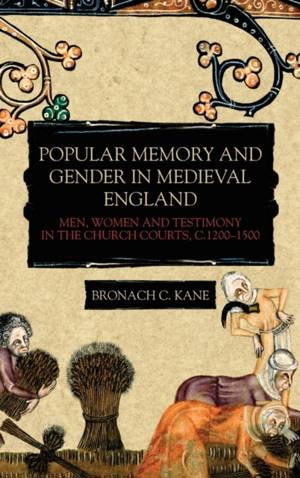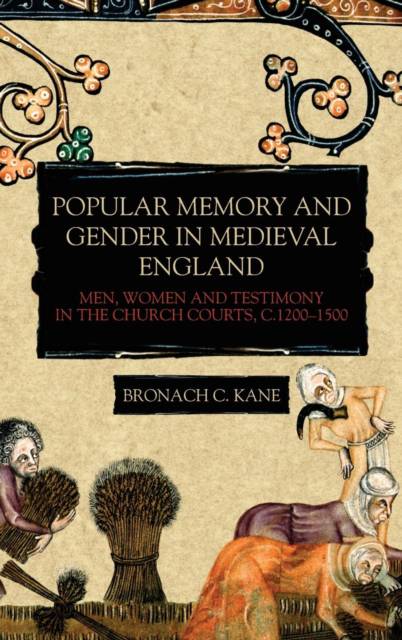
- Afhalen na 1 uur in een winkel met voorraad
- Gratis thuislevering in België vanaf € 30
- Ruim aanbod met 7 miljoen producten
- Afhalen na 1 uur in een winkel met voorraad
- Gratis thuislevering in België vanaf € 30
- Ruim aanbod met 7 miljoen producten
Popular Memory and Gender in Medieval England
Men, Women, and Testimony in the Church Courts, C.1200-1500
Bronach KaneOmschrijving
This book considers for the first time how gender influenced the ways that "ordinary" men and women remembered past events in the centuries leading up to the Reformations. Previous studies have focussed on mnemonics in universities and monasteries; here, however, the author explores lay contexts instead, focusing on the memories of people below the level of the aristocracy. She also challenges conventional narratives aligning female remembrance with domesticity while embedding male memory in the public sphere. It is underpinned by unique records from the church courts of Canterbury and York which preserve vivid testimony from men and women alike, in suits concerning marriage, insult, and debt, as well as tithes, testaments and ecclesiastical rights. From the thirteenth century, Church authorities in Canterbury probed witnesses' memories, asking how they remembered past events, a concern that reached the Court of York in the early 1340s. The book explores the legal and religious developments that generated these memories, which in turn yield precious evidence of the moral and emotional worlds of people at the time.
Specificaties
Betrokkenen
- Auteur(s):
- Uitgeverij:
Inhoud
- Aantal bladzijden:
- 309
- Taal:
- Engels
- Reeks:
- Reeksnummer:
- nr. 13
Eigenschappen
- Productcode (EAN):
- 9781783273522
- Verschijningsdatum:
- 24/05/2019
- Uitvoering:
- Hardcover
- Formaat:
- Genaaid
- Afmetingen:
- 156 mm x 234 mm
- Gewicht:
- 616 g

Alleen bij Standaard Boekhandel
Beoordelingen
We publiceren alleen reviews die voldoen aan de voorwaarden voor reviews. Bekijk onze voorwaarden voor reviews.









